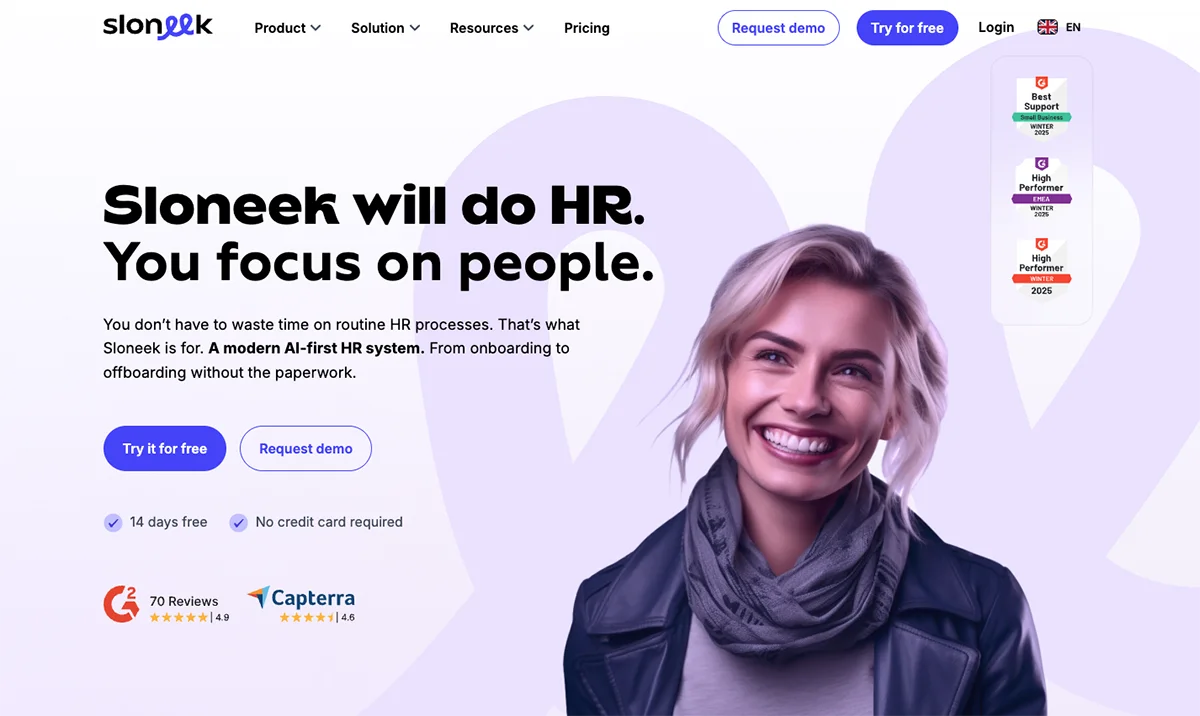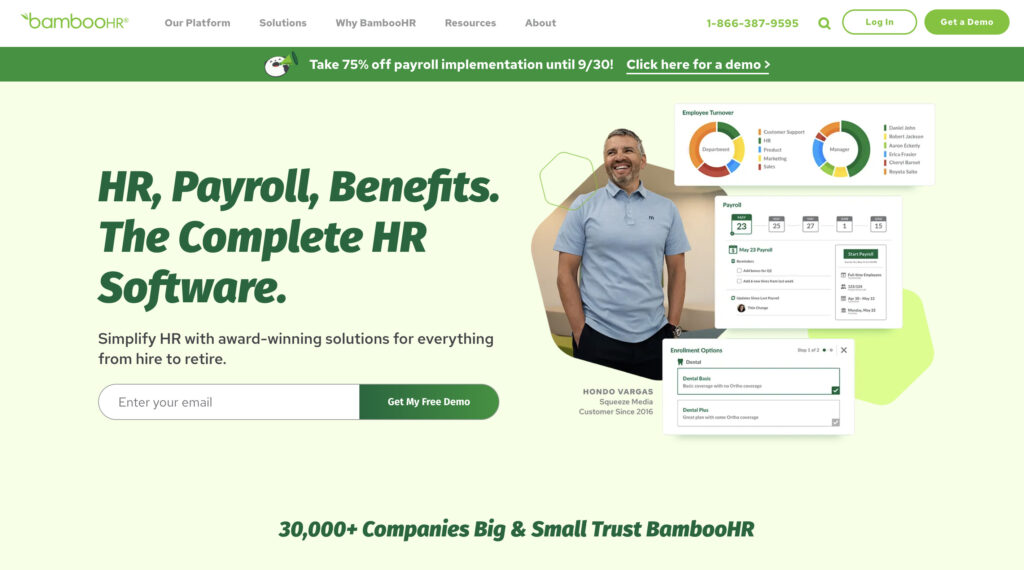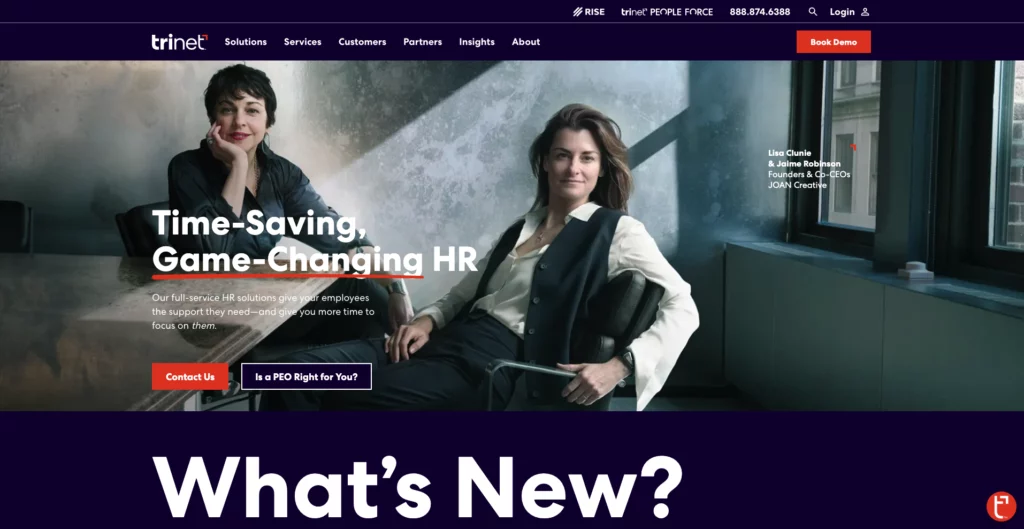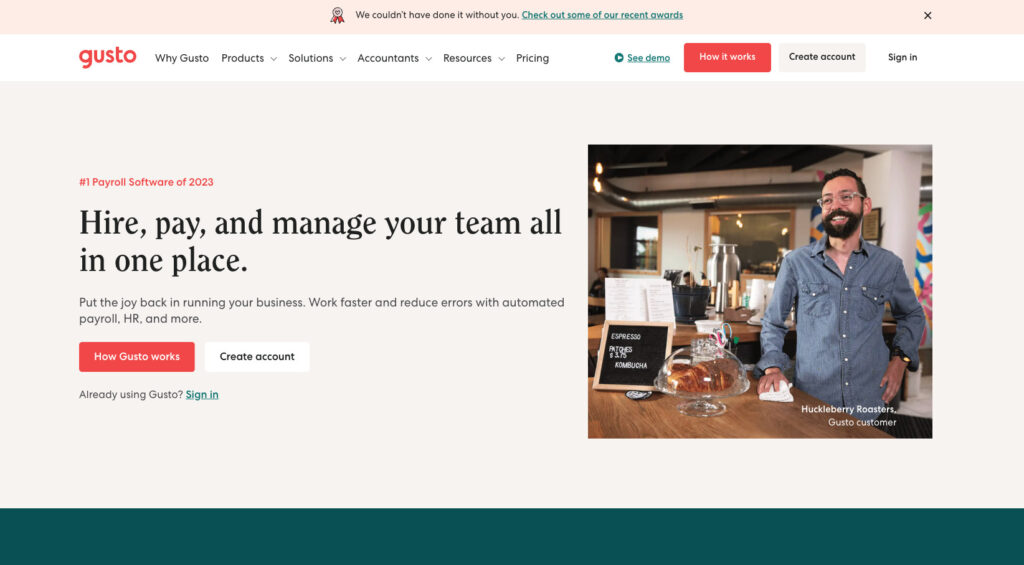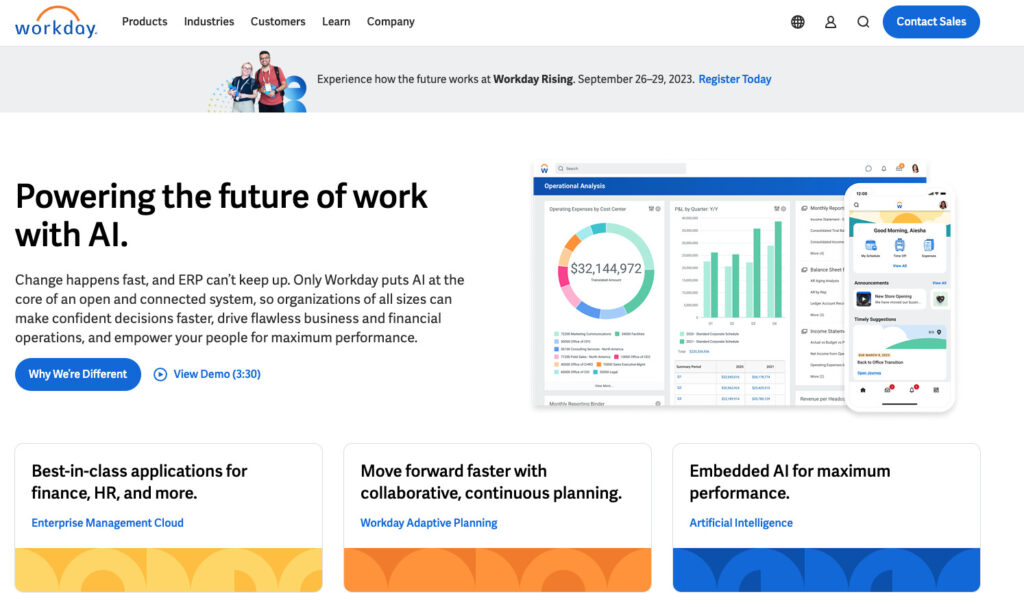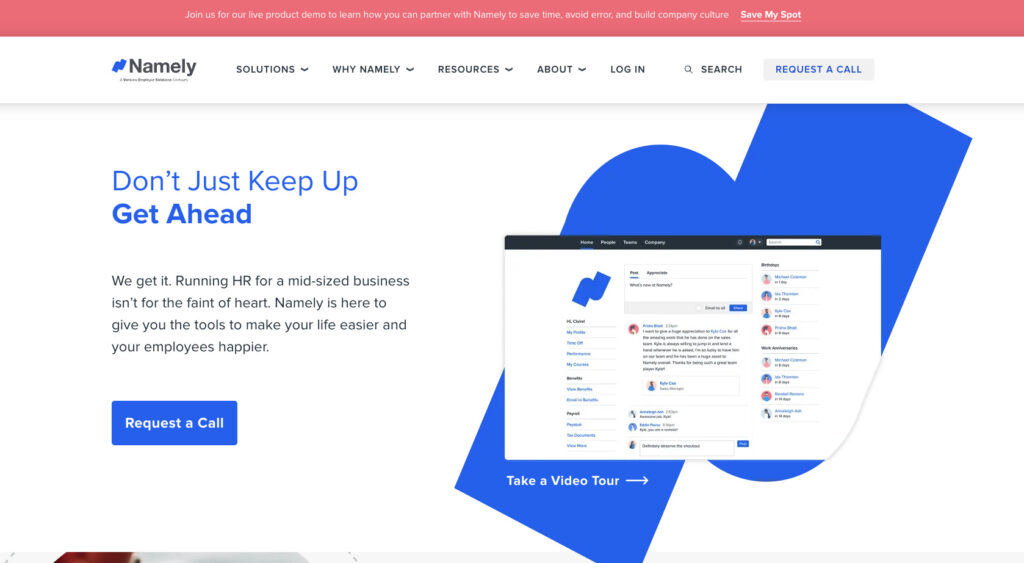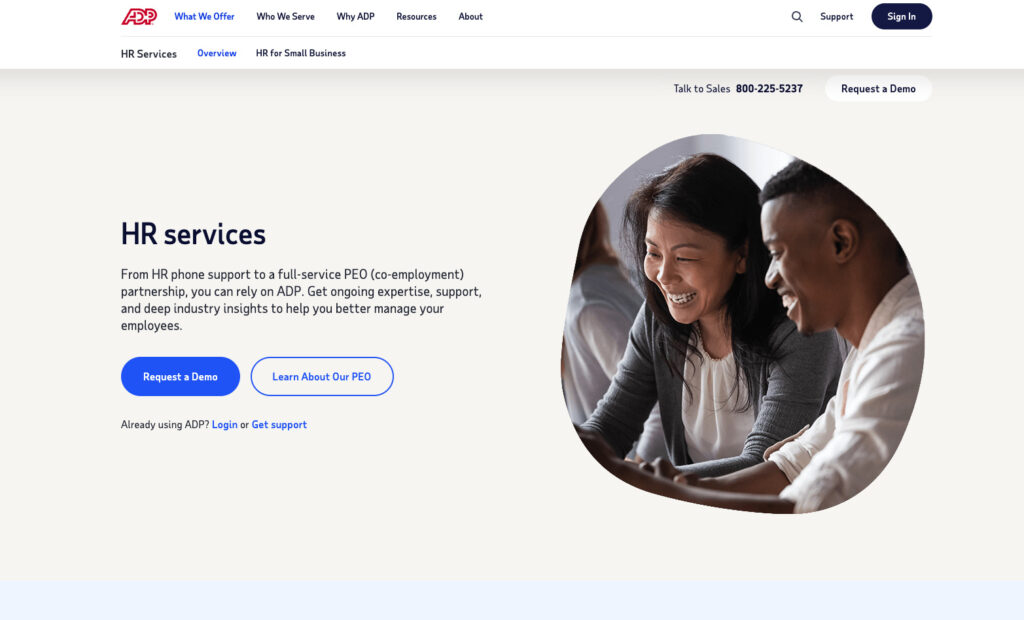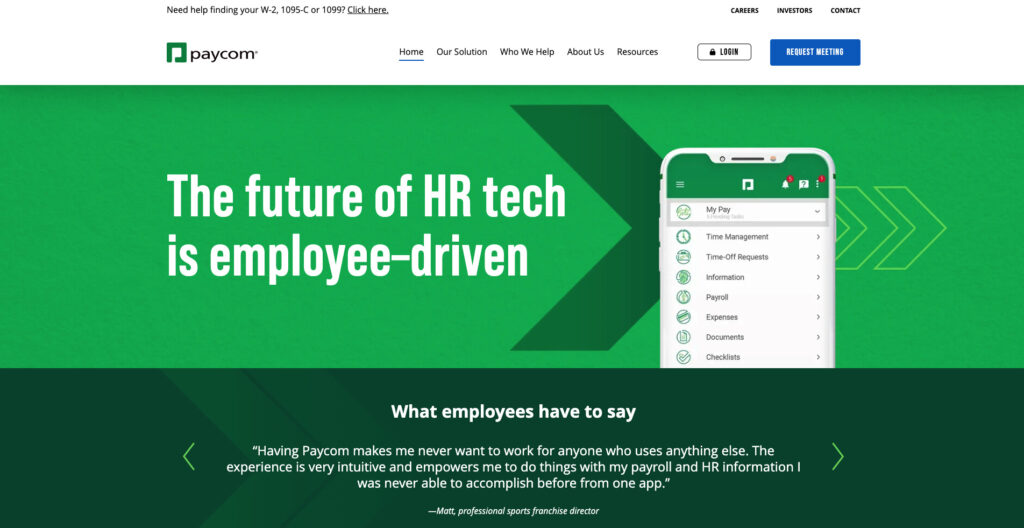Top 10 Core HR Software Solutions Compared
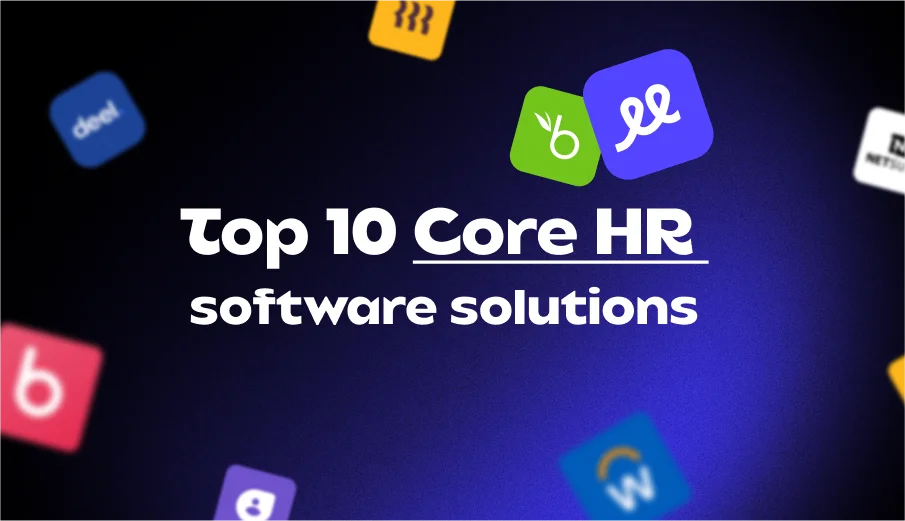
In the fast-paced world of human resources, having the right tools at your disposal can make all the difference. Your search for the best core HR software ends here as we dive deep into a comprehensive comparison of the top 10 human resource management systems on the market.
These systems feature intuitive interfaces that are designed to streamline the entire employee lifecycle, covering everything from feature-rich platforms to budget-friendly options, which we’ll explore to help you make an informed decision.
What is Core HR software?
Core HR software, often referred to as Human Resources Information System (HRIS) or Human Resource Management System (HRMS), is a comprehensive software solution designed to streamline and centralize essential HR functions within an organization. It serves as the foundational system for managing HR data, streamlining core HR processes, automating administrative tasks, tracking employee skills, generating skill matrices, and analyzing skill data alongside other HR information.
Additionally, organizations use a skill matrix tool to assess and track the skills and competencies of their employees. Cloud-based HR software with customizable features and document management modules enables effective people management and ensures consistent compliance.
How do Core HR platforms work?
Core HR platforms work by centralizing HR data and automating various HR processes. Here’s how they typically function:
Data Centralization
Core HR software gathers and stores employee data in a secure and centralized database. This information is easily accessible to authorized users, whether they are part of large enterprises or exploring software for startups.
Automation
Complete HR solutions, like those offered by Ultimate Software, automate routine HR tasks, such as payroll services, benefits administration, and time tracking, reducing manual errors and administrative burdens.
Employee Self-Service
Many human resources management solutions offer self-service tools where employees can update their information, request time off, and access HR-related documents. Employee self-service portals help improve employee experience and boost employee satisfaction, making services employees more accessible and user-friendly.
Integration
Complete HR solutions often integrate with other business systems, such as accounting software, payroll processing systems, recruiting platforms, and recruitment tools, to streamline data flow and improve overall efficiency without falling prey to confusing interfaces.
Reporting and Analytics
Core HR platforms generate data-driven reports and provide analytics tools to help HR professionals make informed decisions and assess workforce performance.
Compliance Management
Human resource management software assist in maintaining compliance with labour laws and regulations by generating reports, tracking employee certifications, and managing documentation.
Scalability
Core HR software can scale with the organization’s growth, accommodating changes in the workforce size and structure. They also help streamline employee onboarding processes, hiring processes, manage employee relations, and facilitate effective communication among remote employees within the Employee Community.
Security
They prioritize data security, ensuring that sensitive employee information is protected from unauthorized access.
Benefits of Implementing Core HR Software
Implementing core HR features is essential for companies for several compelling reasons:
Efficiency: Streamlining core HR functions like employee data management, payroll, and attendance tracking reduces manual work, boosting efficiency, as everyday HR tasks and administrative tasks are simplified through platform features, making it an accessible and intuitive platform design, ideal even for software for startups.
- Data Accuracy: Centralized data minimizes errors and inconsistencies in HR records, enhancing data accuracy. Native integration and extensive integration options allow for seamless data exchange between systems, while customizable and step workflows ensure that data processes are tailored to the organization’s specific needs.
- Talent Management: Core HR software helps in talent acquisition, onboarding, recruitment process, and retention, improving user experience and fostering a skilled and engaged workforce. With advanced recruiting features and capabilities, it streamlines the hiring process to attract qualified candidates, which is particularly beneficial for startups seeking the right candidates efficiently.
- Employee Performance: Performance management tools enable objective assessments and support employee development, leveraging modules for employee training to enhance skills and improve employee relations, while platform capabilities allow employees to concentrate on focus-intensive tasks effectively.
- Compensation Management: Simplified compensation management ensures fair and competitive pay structures, while also streamlining employee benefits and benefits enrollment, offering various payment options to accommodate different contract costs.
- Actionable Insights: Predictive analytics provide actionable insights for informed decision-making and strategic planning by offering deeper data insights and detailed insights through report generation templates and formulas in reports, aiding in the development of meaningful insights that contribute to professional decision-making.
- Workforce Planning: Core HR platforms help companies adapt to changing workforce needs and anticipate future requirements. With extensibility options and decades of business experience embedded in their design, these platforms offer customization settings that cater to unique organizational demands, while custom pricing ensures that solutions align with varying budgetary constraints.
- Employee Engagement: Core HR functions improve employee satisfaction and engagement, boosting productivity by fostering strong employee communities and leveraging communication platforms to facilitate direct access and collaboration, especially for remote employees, thus addressing challenges of limited employee engagement.
- Platform Capabilities & Experience: When evaluating HR software, platform capabilities are critical in determining the overall effectiveness and efficiency of business processes. An all-in-one software solution provides a comprehensive suite of features, making it an excellent option for organizations seeking streamlined operations. Ultimate Software, renowned for its advanced features, offers a highly intuitive platform design that simplifies the user experience, thereby supporting midsized businesses in efficiently managing their HR tasks.
Implementing these solutions allows HR teams to focus on strategic initiatives and provides meaningful insights through advanced analytics tools.
What is the price for implementing the Core HR platform?
The price for implementing a core HR platform can vary significantly based on factors such as the software provider, the number of users, and the specific features required.
Pricing models may include subscription-based fees, one-time licensing costs, or a combination of both. The implementation cost can also depend on the level of customizability and integration with other systems.
For a small to midsize businesses, a basic core HR solution may start at a few hundred dollars per year. However, more comprehensive platforms with advanced features, including talent management, human capital management, and advanced analytics, can range from thousands to hundreds of thousands of dollars annually.
Various pricing plans and payment options allow organizations to choose the solution that best suits their needs and budget. Most vendors offer flexible and transparent pricing plans and payment options that scale with your organization’s needs.
What are the key features to look for?
When searching for the right core HR software, it’s essential to consider several must-have features that can significantly enhance your HR operations. Look for an intuitive platform design with extensibility options that align with your business processes and support advanced workforce planning tools.
Workforce Management
Efficiently track time, attendance and leave, automate workflows, and ensure optimal workforce coverage with streamlined HR software.
Time and Attendance Management
Track employee work hours accurately, manage shifts, and handle attendance records.
Absence Management
Tools for tracking employee leave, managing requests, and ensuring proper coverage during absences.
Workflow Automation
Automation of routine HR tasks and approvals to streamline processes and reduce administrative overhead.
Predictive Analytics
Obtain valuable insights into your workforce and make informed decisions.
Predictive Workforce Planning
Tools that use historical and real-time data to forecast future workforce needs and trends.
Talent Analytics
Insights into employee performance, turnover risk, and other metrics to support talent management.
Applicant Tracking and Hiring Process
Streamline the hiring process by managing job postings, candidate applications, and interview scheduling.
Recruitment Process Management
Tools for creating and managing job requisitions, collaborating with hiring teams, and tracking candidate progress.
Learning Management
Facilitate employee training, course delivery, and skills development.
Mobile Application
Allow employees to access training materials and HR functions on the go with mobile access, promoting a seamless employee experience with intuitive platform design and extensibility options that cater to diverse business processes.
Best Core HR Solutions Compared
Let’s take a look at the top 10 core HR software solutions:
1. Sloneek
Features
Sloneek offers essential employee management tools, including a basic employee time tracker, helping companies monitor employee headcount and improve employee happiness.
The platform supports step workflows and direct access to communication platforms for seamless daily operations. With its intuitive interface and accessible platform, Sloneek is ideal for startups looking for all-in-one software solutions to streamline routine tasks efficiently.
Pricing
The pricing plans are not currently publicly available on the website; for a specific price quote, it is necessary to contact the sales department.
However there are no hidden fees for add-ons, which makes Sloneek the best cost-effective software for your business.
Customer service
Sloneek has one of the most competitive customer services compared to other HR alternatives.
| ✅PROS | ❌CONS |
| Affordable prices with live demo and 2-week trial | Solely HR-related features |
| Entire recruitment covered in one system | Room for improvement |
| Great support | |
| Fast deployment process |
2. BambooHR
Features
BambooHR is renowned for its user-friendly human resources management tool, offering a comprehensive suite of features to support various HR functions. It excels in employee records management, streamlining the onboarding process, handling benefits administration, and providing customizable reporting.
The platform includes robust performance review capabilities, advanced recruiting features, and native integration options, providing detailed insights into employee performance and organizational needs. Additionally, it offers employee training modules and employee relationship management features, which promotes employee engagement.
Pricing
BambooHR adopts a quote-based pricing model. The price for the basic plan starts at $6 per employee per month.
Customer service
It offers responsive customer support, ensuring that users receive assistance promptly.
| ✅PROS | ❌CONS |
| User-friendly experience | Lack of features |
| Self-service feature | US-oriented customer support oriented |
| Hidden costs with ad-ons |
3. TriNet
Features
TriNet offers a versatile, all-in-one platform with intuitive interfaces, combining HRIS, payroll, benefits administration, and time tracking tools. It also features accessible modules for employee training and manages everyday HR tasks, thereby strengthening employee relations.
Advanced Capabilities: Our platform’s advanced capabilities are a testament to decades of business experience, allowing us to perfect an entire product that seamlessly integrates with your operations. With a keen focus on customer relationship management, we ensure that each interaction within the system enhances client satisfaction and loyalty. Our platform features are designed to adapt and grow with your business, providing a robust solution that meets the evolving demands of your industry. Whether you’re streamlining processes or enhancing customer engagement, our advanced capabilities are here to drive your success.
Pricing
With a starting price of $8 per employee per month, it provides an affordable solution for small to midsize businesses.
Customer service
Customer service quality can vary.
| ✅PROS | ❌CONS |
| Simplifies compliance processes | Complex setup |
| Provides a comprehensive suite of HR tools |
4. Gusto
Features
Gusto is a payroll and HR software known for its user-friendliness and robust features. It specializes in payroll processing, benefits management, compliance, and offers employee self-service functionalities. Gusto is a candidate for startups looking for software with a 14-day free trial, mobile access, and a focus on simplicity.
It includes benefits modules, employee benefits administration, and tools for prospective customers evaluating contract costs and onboarding. With its performance reviews integration, dark mode functionality, and recruiting features, Gusto is an excellent option for businesses seeking a focus on customization.
Pricing
Pricing starts at $45 per month, plus $6 per employee per month.
Customer service
The platform is known for its excellent customer support.
| ✅PROS | ❌CONS |
| Seamless user interface | Extra fees for additional features |
| Robust applicant tracking features |
5. Workday
Features
Workday offers comprehensive solutions across a segmented product category with various product tiers. Although the platform has a complex user interface, it delivers deeper data insights through report generation templates and formulas in reports, making it a professional decision for large organizations. Workday stands out with its comprehensive HCM suite, covering workforce planning, analytics, talent management, and more.
Insights and Reporting: Workday excels in providing insightful analytics and reporting capabilities that are pivotal for focus-intensive tasks. The platform utilizes advanced report generation templates and incorporates formulas in reports to offer a detailed view of workforce data, enhancing strategic planning and decision-making. By leveraging functionality from acquisitions, Workday delivers exceptional insights, making it an essential tool for organizations aiming to harness deeper data insights effectively. These features facilitate professional decision-making processes, allowing businesses to stay ahead in a competitive environment.
Pricing
Pricing is quote-based, often favouring large enterprises due to the extensive features it offers.
Customer service
The customer service is generally well-received, and it’s especially ideal for large organizations.
| ✅PROS | ❌CONS |
| Advanced features | Overly complex |
| Real-time insights | Expensive for smaller businesses |
6. Namely
Features
Namely offers a user-friendly HR platform designed for midsized businesses, featuring communication platforms, customization settings, and recruiting capabilities. It supports step workflows and provides tools for paperwork tracking, limited employee engagement, employee engagement time tracking, and talent management functionalities, all while offering native integration options for a seamless experience.
Pricing
Its pricing is quote-based and can vary widely based on company size and requirements.
Customer service
Customer service reviews are mixed, with some users reporting glitches.
| ✅PROS | ❌CONS |
| Unified approach | Expensive for small businesses |
| Strong compliance features | Technical glitches |
7. ADP Workforce Now
Features
ADP Workforce Now is known for its integration options and robust platform capabilities. It includes features for benefits enrollment, compliance warnings, and performance appraisals, making it a reliable choice for business services providers and HR departments seeking answers to compliance questions, while also helping organizations attract qualified candidates through its advanced capabilities and dedicated customer service manager.
Pricing
Pricing is customized based on specific business needs.
Customer service
Customer service experiences can vary, but it is generally considered a robust payroll solution.
| ✅PROS | ❌CONS |
| Employee self-service portal | Expensive for small companies |
| Advanced core features |
8. Paycom
Features
Paycom offers payroll, HR, talent management, and employee self-service solutions, effectively automating routine tasks to optimize time for focus-intensive tasks and providing detailed insights for managing billable employees.
Pricing
It offers custom pricing to meet specific business requirements, often determined by the number of employees.
Customer service
The platform receives positive feedback for its user-friendly interface and strong customer service.
| ✅PROS | ❌CONS |
| Intuitive and user-friendly interface | Expensive pricing |
| Robust talent management features | Difficult learning curve |
9. Oracle HCM Cloud
Features
Oracle HCM Cloud provides cloud-based HCM, workforce management, talent management, and analytics features, incorporating functionality from acquisitions to improve practices documents and attract prospective users despite its occasionally complicated interface.
Pricing
Pricing is quote-based and can be substantial, making it more suitable for larger enterprises.
Customer service
Customer service generally garners positive reviews.
| ✅PROS | ❌CONS |
| Robust global capabilities | Complexity |
| Scalability | Expensive for small businesses |
10. Kronos Workforce Ready
Features
Kronos Workforce Ready focuses on workforce management, timekeeping, payroll, and HR functions, offering platform capabilities that streamline routine tasks and provide a basic employee time tracker to enhance services for employees.
Pricing
Pricing is customized, often based on specific business needs.
Customer service
Customer service is generally positively reviewed.
| ✅PROS | ❌CONS |
| Strong timekeeping and workforce management capabilities | Cost-prohibitive for smaller businesses |
| Advanced features may require a learning curve |
Conclusion
Core HR software plays an important role in modernizing human resources management. This article has explored the key features to look for, the benefits of various core HR solutions, and when it’s the right time to implement them. The choice depends on your unique needs, budget, and growth stage.
Implementing the right core HR software can significantly improve HR efficiency, data accuracy, and strategic decision-making, ensuring your organization is well-equipped for the challenges of workforce management in today’s business landscape.
Whether you’re seeking tools for qualified candidates or deeper data insights, these platforms offer a wide range of platform capabilities and customization settings tailored to different company sizes and goals.
FAQ
What is the core HR software?
Core HR software is a comprehensive software solution that centralizes and automates essential HR functions. It manages employee data, payroll, benefits, time and attendance, and other core HR processes, enhancing efficiency and accuracy in HR management.
What are the key features of an all-in-one core HR program?
Core HR software offers a wide range of critical HR functions, including:
- Employee Data Management: Store/manage personal details, contact info, histories, and qualifications.
- Payroll Processing: Calculate payroll, deductions, and deposits accurately for timely payments.
- Attendance Tracking: Monitor work hours, leave, and requests to streamline attendance management.
- Benefits Administration: Manage health, retirement, and perks, aiding both employee choices and admin.
- Compliance & Reporting: Ensure compliance with laws via report generation and document management.
- Recruitment & Onboarding: Tools for job posting, interviewing, and onboarding new hires.
- Performance Management: Facilitate evaluations, goal setting, and feedback for development.
- Training & Development: Track training programs for skill and career enhancement.
- Employee Self-Service: Allow employees to access/update HR info and perform tasks independently.
- Analytics & Reporting: Offer data insights for workforce trends and strategic decision-making.
What are the best core HR solutions on the market?
The best core HR solutions on the market can vary depending on your organization’s specific needs and size. Some top contenders include Sloneek, Workday, BambooHR, Zenefits, Gusto, and ADP Workforce Now. Sloneek provides an all-in-one HR solution. Consider your business requirements and budget to determine which solution suits you best.
When is the right time to implement a core HR program?
The right time to implement a core HR program is typically when your organizational structure reaches a size or complexity where manual tasks and HR processes become inefficient and error-prone. This could be as your workforce grows, compliance requirements increase, or HR tasks become overwhelming.

